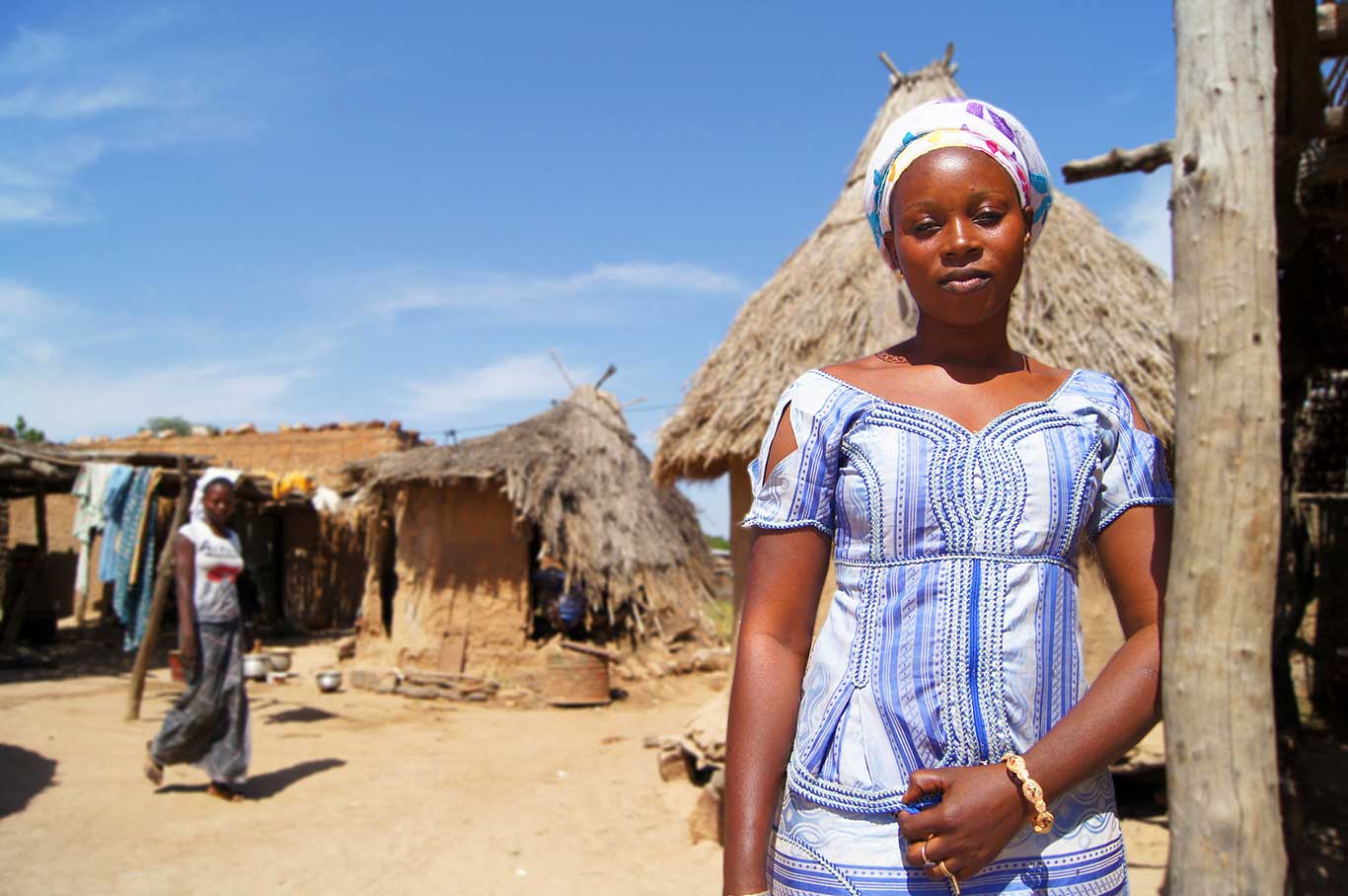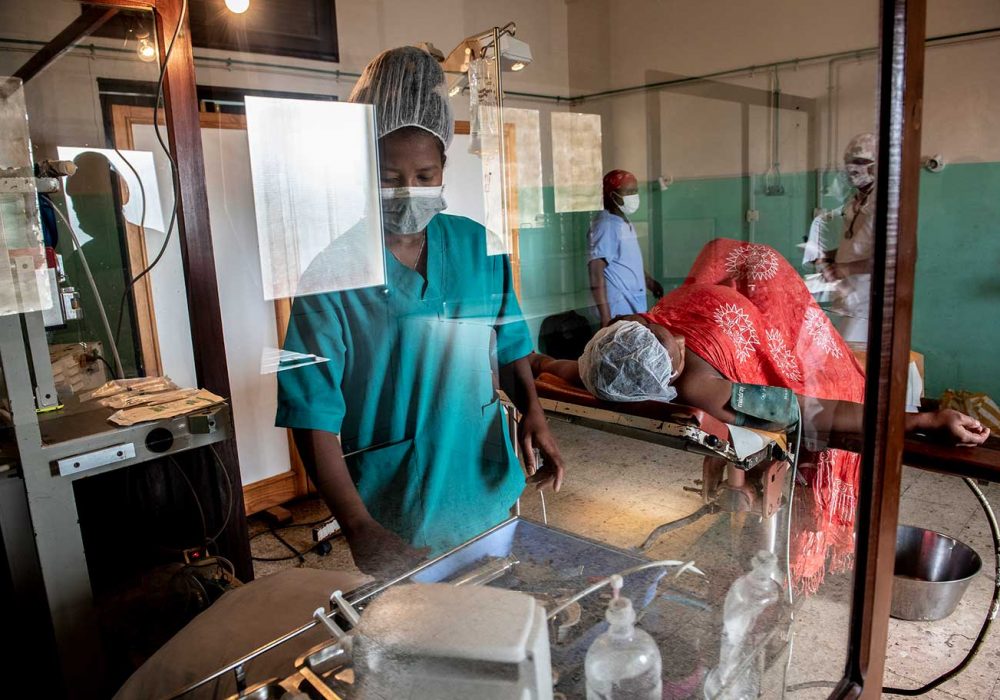Mali



Country Contact
Hamadoun Kassambara, Program Manager
Tel. +223 44 90 62 27
Hamdallaye ACI 2000
Rue 110, Porte 234
Bamako, Mali
Current and Recent Donors
CDC
Clinton Health Access Initiative
Bill & Melinda Gates Foundation
Global Fund to Fight AIDS, Tuberculosis and Malaria
USAID
Increasing the population’s access to lifesaving health care since the late 1980s.
- Jhpiego supported the government of Mali to increase women’s access to modern comprehensive contraception mix by developing and implementing self-injection guidelines for a new form of contraception, depot-medroxyprogesterone acetate (DMPA-SC). In 2023, DMPA-SC was used by 35,585 women, including 18,569 new users.
- Through the Enhancing Global Health Security Project, Jhpiego provided Mali’s National Institute of Public Health with MinION, a next-generation sequencer that has enabled the country to implement SARS-COV-2 molecular surveillance to monitor COVID-19 variants circulating in the country.
- With more than 60% of Malians seeking care in private health centers, Jhpiego worked through the USAID-funded Momentum Private Healthcare Delivery project to strengthen the capacity of 275 private-sector maternal and newborn health care providers to provide lifesaving services, including postpartum hemorrhage management, newborn resuscitation, and artificial delivery of the placenta.
- Through the Antenatal Postnatal Care Research Collective, Jhpiego designed and piloted an intervention to leverage peer-to peer midwife support, and also conducted an implementation research study with 475 pregnant women on the feasibility and acceptability of transitioning from iron-folate supplementation to multiple micronutrient supplementation during pregnancy, as recommended by the World Health Organization.
Our Work in Mali
Enhancing Global Health Security: Expanding Efforts and Strategies to Protect and Improve Public Health Globally
Funded by the U.S. Centers for Disease Control and Prevention (CDC), this five-year project builds upon activities funded by CDC to support Global Health Security through implementation of programs and activities that focus on protecting and improving health globally through partnerships with Ministries of Health and other institutions. With an initial emphasis on addressing the COVID-19 pandemic, the project is supporting countries—including Mali—and carrying out regional work in West Africa and South America to improve prevention of avoidable epidemics, including naturally occurring outbreaks and intentional or accidental releases of dangerous pathogens, and to improve ability to detect threats early and respond rapidly and effectively to public health threats of international concern. The project is being implemented by a Jhpiego-led consortium that includes the Johns Hopkins Center for Health Security, the Johns Hopkins University Applied Physics Laboratory, Global Scientific Solutions for Health, and Johns Hopkins University Center for Global Health.
MOMENTUM Private Healthcare Delivery
Moving Integrated, Quality Maternal, Newborn and Child Health and Family Planning and Reproductive Health Services to Scale (MOMENTUM) is a suite of projects, funded by the U.S. Agency for International Development, that aims to accelerate reductions in maternal, newborn and child mortality and morbidity in high-burden countries by increasing host country commitment and capacity to provide high-quality, integrated health care. Each of the projects has a specific focus area; together they provide a comprehensive, flexible package of support for countries as they overcome context-specific health challenges towards sustainable development. The PSI-led MOMENTUM Private Healthcare Delivery project supports countries—including Mali—to improve the quality of care provided by the private health care sector and increase opportunities for a total market approach to quality services, products and information in the areas of maternal, newborn and child health, family planning and reproductive health.
Antenatal Care/Postnatal Care (ANC/PNC) Innovations and Implementation Research Platform (ANC/PNC Collective)
With funding from the Bill & Melinda Gates Foundation, Jhpiego is developing an ANC/PNC innovations and implementation research platform. This initiative is designed to strengthen ANC/PNC service delivery through implementation research in Ethiopia, Malawi and Mali, and to disseminate learnings globally. The primary expected outcomes include earlier entry by pregnant women into ANC/PNC care; increased continuity of care; improved quality of care; and an improved understanding of key risk factors, vulnerabilities and morbidity/mortality outcomes. The research collective unifies multiple teams under a single collective, comprised of the following partners: Jhpiego, Harvard School of Public Health, Child Health and Mortality Prevention Surveillance (CHAMPS), RTI International, Christian Medical College Vellore, DAI, the World Health Organization, CARE/India and the University of Manitoba. As part of this collective, Jhpiego is: 1) conducting implementation research on innovative service delivery models and tools in three countries; 2) serving as technical advocacy lead by synthesizing data and findings across the collective to inform an evidence package; and 3) providing technical assistance, as needed, as collective partners conceptualize, design, implement and test new service delivery models. Jhpiego is also partnering with the Johns Hopkins School of Public Health Biostatistics Center and Department of International Health for support with statistical analysis, data management and implementation research design.
Institutionalization of DMPA-SC in Eight Ouagadougou Partnership Countries
This project aims to coordinate and support the government of Mali in implementing their plans to scale up and institutionalize subcutaneous depot-medroxyprogesterone acetate (DMPA-SC), also known as Sayana® Press, in their budgeted national family planning strategic plans, in collaboration with the private sector and other national and regional implementing partners. Funded by the Bill & Melinda Gates Foundation, the project seeks to strengthen the country’s capacity for accelerated and autonomous implementation of the DMPA-SC self-injection scale-up plan in collaboration with the government, and coordinated between the public and private sectors, Access Collaborative partners and other implementing partners by end of project.
Catalytic Opportunity Fund to Expand Coverage of DMPA-SC and Self-Injection in Mali
This project capitalizes on investments toward the previous national DMPA-SC scale-up plan (2019–2021) in Mali, which achieved full coverage for 34 out of 76 districts and partial coverage for eight health districts. Jhpiego is training 250 providers on DMPA-SC and self-injection in the partially covered regions and will ensure the supply and availability of DMPA-SC in 10 health districts—thereby making it possible to partially fill the coverage gap and meet unmet needs of clients after the first DMPA-SC scale-up plan. Other activities include supporting DMPA-SC procurement planning, communication campaigns for raising awareness about DMPA-SC and self-injection, and management of DMPA-SC and self-injection data in health establishments in the public and private sectors.
Country Contact
Hamadoun Kassambara, Program Manager
Tel. +223 44 90 62 27
Hamdallaye ACI 2000
Rue 110, Porte 234
Bamako, Mali
Current and Recent Donors
CDC
Clinton Health Access Initiative
Bill & Melinda Gates Foundation
Global Fund to Fight AIDS, Tuberculosis and Malaria
USAID

